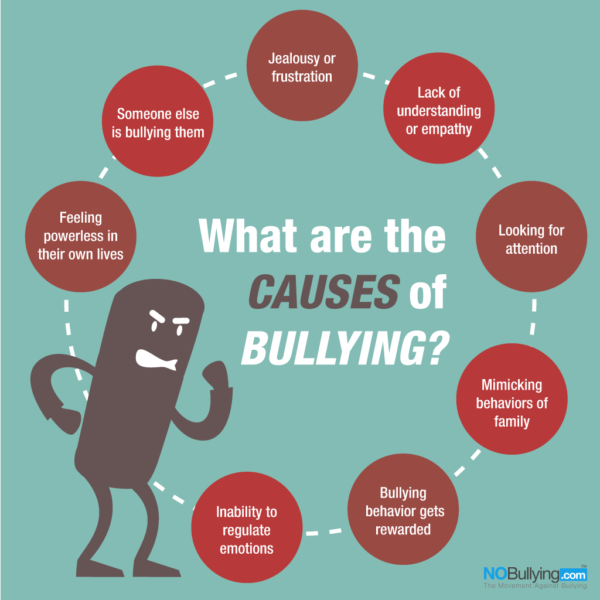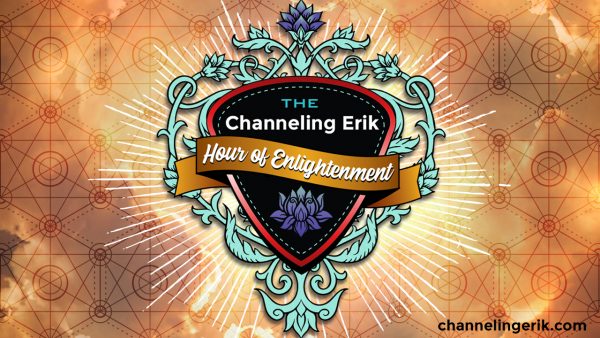We had a wonderful Thanksgiving and only the second one where we didn’t have it at our house with Lukas and I doing all the cooking. The first time we broke from tradition was right after Erik’s death. We were just not feeling very thankful for anything at that time. Instead, we went to some German restaurant gnawing solemnly on bratwursts. Yesterday, we were invited by Kristina’s in-laws, Lisa and Grant, to celebrate at their house. The entire extended family was there and the company and food was wonderful! Easton was a big hit because, as always, he was so happy and loving, passing out kisses and hugs to everyone within his reach. He ran into the arms of cousin, three year-old Avery, knocking her to the floor and causing her to cry. He looked so puzzled and didn’t understand why such a display of love could be the cause of tears. Then, he sat on the sofa and held 10 day old cousin, Harper, in his lap. He was so gentle with her, kissing her tenderly on her head and lying his head down on her in a sweet hug. Cute little guy and such a special soul. Arleen, also a special soul, spent her Thanksgiving at her daddy’s house. I miss her already but we FaceTimed our Happy Thanksgivings to each other.
Don’t forget that on Monday at 7 PM CT is Erik’s Hour of Enlightenment radio show. During the first part of the show, Erik will give us a deeper understanding of souls and discuss the various types like starseeds, earth angels and more. Call 619-639-4606 15 minutes prior to talk to Erik. The link for the show page has changed, and I’ll post that as soon as Rob Szarek, the producer, gives it to me!
Enjoy the last part in our series on bullying and have a lovely Friday!
Me: But what about bringing the kids together and having them mediate, the two kids?
Erik: Oh, but they would be there with them. Yes, they would have to be there with them.
Me: Maybe if the kids were there by themselves, I mean, they might get pissed at the “victim” (air quotes) for bringing the parents in. It’s like “Oh, you’re a tattletale, you told your parents and they got mine involved.”, etc. What about just the kids and the counselor, sorta trying to work it out, between them? No?
Erik: You can do that as well, but the reason I’m saying it’s beneficial to have the parents there, because usually kids are responding that way because there’s something going on in the family. There’s something going on with the parents. So, what you’re giving is, you’re not only giving guidance and understanding to the children, because they would have to be present with the parents as well, but you’re also giving some tools to the parents and saying “Hey, your child-“ I mean these parents might not even know that their child is responding to that in that way. Let’s say the parents are going through a divorce, let’s say the parents are fighting and they don’t even realize. They’re not bad people, but they’re going through the emotions of a divorce and they’re not realizing how their little boy, for instance, is responding to that. Because at home, he’s not saying anything, he’s hiding. You know a lot of kids hide when their parents are divorcing.
Me: Yeah, and they need to know.
Erik: And then it comes out. It needs to come out somehow.
Me: All right. I have three quick que-well, four. What one sentence would you tell your niece, Arleen, to say to a bully when they are bullying her? I mean everybody gets bullied. She gets bullied rarely, but she still does. What should she say? What would be good for her?
Erik: Well, she’s a very compassionate person, but she has a little bit of an edge.
Me: Well she does. She got some ‘tude on her man, she’s got some ‘tude. Yes.
Erik: What she needs to do, is she needs to learn—and Mom, you can help her with that—she just needs to learn to first of all, stay calm. Because she’s a person that can get on her high horse real quick.
Me: Umm hmmm.
Erik: She gets very defensive.
Me: That’s true. She has a lot of pride.
Erik: She needs to learn to take a breather before she does anything.
Me: Ok.
Emma: Ok.
Me: Take a deep breath. Ok.
Erik: Tell her to take a deep breath, or to go to the bathroom for a minute to just kinda calm down, and then once she does, she needs to step up. She needs to show that she’s assertive. That she’s in control of the situation. She steps up to the bullier or whoever it might be and say “I know you’re hurting, but I still love you, if you ever want to talk.”
Me: Or “I still care about you” or—
Erik: Or whatever you feel comfortable with, but her first step is calming down. Because she will go immediately WHAA! That’s kind of who she is. She’s a response first, think later kinda girl.
Me: Just like her mother. Ok, now, what are the—first of all now, just a real quick one: Will bullying ever stop in our lifetime? Or when will bullying be—it’s probably 10,000 years from now—that’ll stop.
Erik: It’ll reduce in the hundreds of years to come, but it’s never gonna fully fade away.
Me: Because those are lessons, yeah.
Erik: Because there’s a portion of the population who will deal with this factor, unfortunately.
Me: Ok, and what about the lessons that this is for the collective? We talked about what the individual can learn from this on both sides, but what about the collective? And also, lastly, what are the solutions for the collective? (sfx: ring) God dang fax machine! Oh, I can’t unplug it. It’s probably “Oh, we can redo your roof!” That’s all I get, roofing people, after hurricanes especially.
Emma: (giggles)
Erik: What it teaches a society, what it teaches the global consciousness is really about understand that there are hidden issues. That people need to see, that if another person hurts somebody, that there’s an underlying factor, that there’s something there. So it’s all about finding the compassion and the acceptance that it’s not just anger. It’s not just attacking somebody, but what is the story behind it? It’ll teach us to be more compassionate and really, um, find a way in our heart—
Emma: He’s pointing at his heart.
Erik: Find a way in our hearts to forgive; even the ones who hurt our babies, even the ones who hurt others. Because they need help. This bullying is a cry for help. Bullying is a cry to be heard and we need to respond to that in the correct way. What we’re doing now is we’re expelling kids, we are attacking them at the same level that they are attacking us, we are destroying them even more. It’s a cry for help! That’s what it is. It’s a cry for help.
Me: Well you know sometimes the people who are the hardest to love are the ones who need it the most.
Emma: Need it the most. Yes.
Me: Last, what is it? The solution that society, what are some solutions for society to embark on?
Erik: Stop judging. Don’t judge on what you see, but look deeper, look inside.
Me: Well, that’s an individual, what about a collective? What kind of campaigns or whatever should there be? Maybe all schools should have conflict mediation classes? I mean, I don’t know, non-violent communication courses…uh, what? I’m talking about grand scale, collective stuff.
Emma: About what we could do to address it?
Me: To help get rid of it, or quell bullying.
Erik: Well, collectively, we need to learn to love ourselves.
Me: Oh, yes.
Erik: Then we won’t have any more bullying.
Me: True, true.
Erik: Self-love is number one. Number is two is really finding purpose in life again. The reason why people are lost is because they feel like there’s no reason for them to be here, they don’t see the connections, they feel like their life is meaningless, they feel lost, they don’t feel like they deserve anything. So if you look at it from a big scale, it all comes back to self-love. It all comes back to finding a way to heal human beings from the inside out.
Me: Ok.
Erik: That’s what it’s all about. If we can do that, then we will reduce bullying with at least 90%.
Me: Ok. I think it would be cool for schools to have like older peer mediation conflict resolution whatever, like a 4th grader, if they’re being bullied, maybe there could be a 5th grader who gets the two together and helps them work through it, for example, or the counselor.
Emma: There are different things we could do.
Me: There are all sorts of things we could do. You could teach non-violence.
Erik: We could teach assertiveness in schools. We could teach classes on how to handle bullies. Because when you bring a class together and teaching a class, how do we handle bullies in the right way? Then guess what? People have to work together. There could also be classes where we learn mindfulness, where we learn how to meditate to deal with our frustrations. There could be classes that need to be about sharing, being open about things.
Me: Yeah, being emotionally honest.
Erik: You have to share what is—you know, in a mindfulness class, you really have to share in a group what is bugging you, what is hurting you and sharing can really relieve a lot of that tension and also create friendships that will then help that person into dealing with that toxic environment, or that toxic idea that they have about themselves. So it’s all about learning to listen. Help each other, opening up and really going inside to find some peace every now and then. If we can introduce meditation/mindfulness, which they are starting to now, and really get some help, aid groups or groups where people can just talk to a counselor, maybe like an AA meeting, where you can talk about problems and people are there to support and not judge, even for small kids. We have that for adults.
Me: Umm hmmm.
Erik: But when it comes to smaller children, to younger kids, you know kids can be suicidal when they’re 2-years-old, 3-years-old, depending on the environment that they come in to.
Emma: What Erik is saying is true. Here in Belgium we already see that parents are sending their 4-year-olds to mindfulness classes, especially designed for children, because they see that they get frustrated in school for some reason and it really helps them. So we need to introduce this. This needs to be a part of our educational system. Give the kids the tools to find that self-love, to know how to handle frustrated people, to know how to let them hack it.
Me: Yeah, they need to learn that vulnerability helps to establish connections and that’s really important. What about, also, role-playing bullying? So that kids of all ages can practice doing what they need to do to stop the bullying from going on. Like some of the tools that you mentioned earlier.
Erik: Yeah, that’s what I meant with a class about how to act when you’re being bullied. You know, you’ll practice on one another, how to respond back in a correct way, so we don’t get into anything. That’s all about assertiveness, it’s all about dealing with frustrated people. You know they do that now with adults who have specific jobs. You get a certification class to deal with this kind of customer or to deal with that kind of customer. Why not start when children are smaller, so they know how to handle without hurting themselves or without hurting somebody else? How do we respond when somebody attacks me verbally or somebody does this to me? Why not start when they are younger?
Me: Sounds awesome. I think that’s a good note to end on. You guys can get in touch with Emanuelle at Emanuelle McIntosh dot com. And, is there anything else you’d like to share?
Emma: You can also find me on Learn It Live dot com. There are several classes there you can order that have been prerecorded. And I would suggest to go to the Channeling Erik with a K dot com website and definitely check out the two books that were written, they are amazing! And I know that every time you read one, Erik is standing right behind you, because I have had people say: “Every time I read the book, I feel cold.” And I say, that’s because Erik’s standing right next to you going what do you think? What do you think?
Me: It’s seems that anybody who reads his book, “My Life After Death”, they seem to get some sort of visit or sign or prank. I mean, nothing scary, but it’s really a great book. You know it’s like $8.64 right now. It is so cheap, but it’s a life-changer, it’s a page-turner. You will cry, you laugh. I’m not bragging, because I didn’t write it. But it’s really a very good book. So you guys check it out. The other is “My Son in the Afterlife”, which sort of journals my journey from skepticism to belief, but in both books, you really get an idea of what it’s like to die, what heaven is like, what your life as a spirit will be and even how your senses and emotions change, everything! And you know, what spirits do all day. They do not hang around on clouds and play harps, I promise you.
Emma: And it’s a lot of fun, I think. When I read them, I laughed my ass off the whole time. Especially Erik’s book.
Me: Oh yeah.
Emma: And for people who’s English isn’t that great, you know, my mom speaks half and half English, you’ve heard my mom.
Me: Oh yeah.
Emma: She was a little worried about the book, because here in Belgium, we can’t get it in Dutch yet. But she said, “Oh my God, when I read it, it was like Erik was helping me to understand.”
Me: WHAT?
Emma: She read page after page. She didn’t have to stop once. So she felt it was really weird, because she’s not used to reading English so fluently. And I said, well Erik was right next to you and he was helping you connect to the words.
Me: Oh wow, that’s cool.
Emma: So for everybody who’s afraid of the English, if your English isn’t that great, it is NOT a problem.
Me: But it’s in several languages too, so check it out. Alright, thank you and thank you Emma and thank you Erik. I love you. This was really awesome and I hope it helps a lot of people. Bye everybody.
Erik: I love you too.
Emma: Bye Guys!
Me: Bye.
Are you thankful for Erik and Channeling Erik? If so, please click on the button below and help out with some of the expenses. I am so thankful for all of you, my second family!




